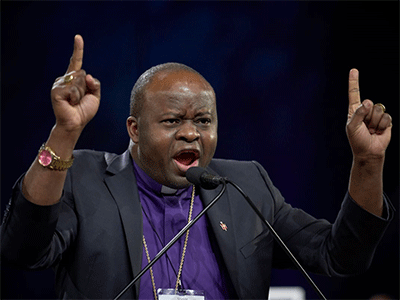The United Methodist leadership body that coordinates the denomination’s mission and ministry is going back to the drawing board in its plan to be both smaller and more global.
At an April 27 online meeting, Connectional Table members — by a 66% margin — voted to reconsider legislation to change its board composition.
The Connectional Table is asking its board-makeup committee to develop a new proposal that includes at least some agency presidents as well as representatives from caucus groups outside the U.S.
But the leadership body still hopes to submit legislation to next year’s General Conference that, if approved, will lead to a more nimble and more internationally representative Connectional Table.
Your support of The General Administration Fund apportionment implements trustworthy administrative oversight like the Connectional Table.

The Book of Discipline, the denomination’s law book, describes the Connectional Table as “where ministry and money are brought to the same table” to coordinate the denomination’s mission, ministries and resources.
The leadership body coordinates the work of general agencies, and it works with the General Council on Finance and Administration, the denomination’s finance agency, in drafting the budget that will go before General Conference. The leadership body also collaborates with the Council of Bishops in discerning a vision for the denomination and works on emerging challenges.
Since the Connectional Table’s formation in 2004, the preponderance of its 64 members has come from the United States, even as the church’s membership has grown more international. The denomination has seen most of its growth in Africa.
But in February, the leadership body approved a proposal to change its composition with the goal of better reflecting the denomination it serves. The proposal would reduce the Connectional Table from a 64-member board with 49 voting members to a 47-member board with 32 voting members.
A significant change is that the plan eliminates the presidents of board agencies as board members. Most agency boards have chosen U.S. bishops as their presidents.
However, the lack of board presidents became a sticking point when the Connectional Table took up the legislative language for the proposal at its April meeting.
Newly elected Bishop Héctor A. Burgos Núñez, who just joined the Connectional Table as the Discipleship Ministries president, raised “deep concerns” about the change.
“In my view, it limits the capacity of the CT of truly being a global coordinating body,” said Burgos, who leads the Upper New York Conference. “Agencies, for the most part, have global mandates so removing the presidents limits the capacity of truly being a coordinating body amongst our denomination.”
Benedita Penicela Nhambiu, a Connectional Table member from Mozambique, raised another worry about the legislation. She noted that the denomination’s six ethnic caucuses, due to how they developed, are all U.S. based.
“But outside the U.S., there are also some groups that could have a desire to influence the conversation of the Connectional Table,” she said. Nhambiu suggested the Connectional Table consider adding some of those groups’ representatives to its roster.
The conversation culminated in the Rev. Lyssette N. Perez bringing the motion for the Connectional Table to reconsider and send its comments for the consideration of the committee drafting the legislation.
excerpt from a story by Heather Hahn, Assistant news editor, UM News
One of seven apportioned giving opportunities of The United Methodist Church, the General Administration Fund implements trustworthy administrative oversight, supports the legislative processes of the church and curates The United Methodist Church’s rich history. Please encourage your leaders and congregations to support the General Administration Fund apportionment at 100 percent.





